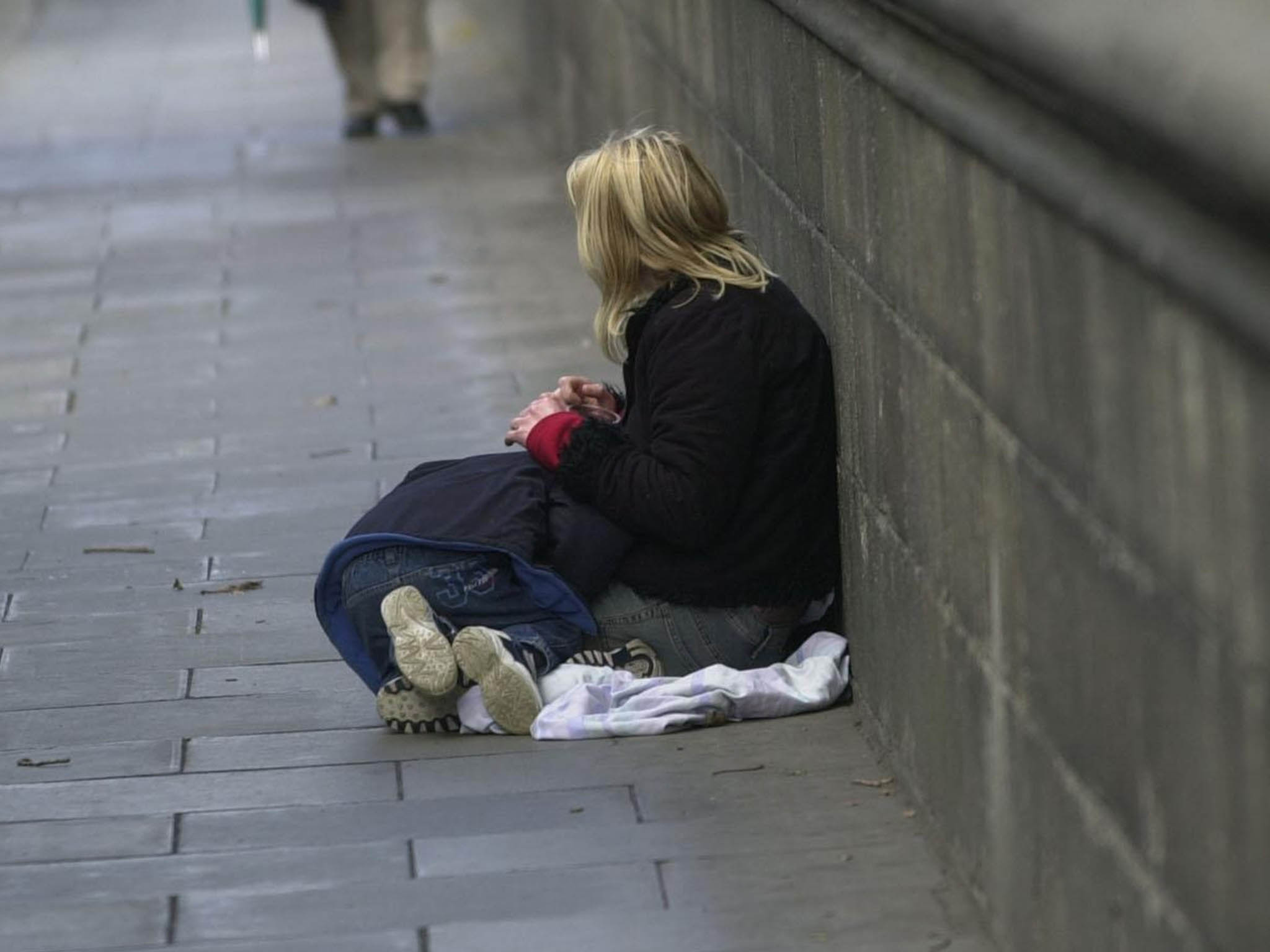4,000 women and children fleeing domestic abuse will be locked out of refuges under government proposals, warns charity
Plans announced by Theresa May to place councils in charge of ring-fenced supported housing funds could see more than a third of refuges across England forced to close down

More than 4,000 women and children fleeing domestic abuse face being locked out of refuges under Government proposals, a charity has warned.
Plans announced by Theresa May to place councils in charge of ring-fenced funding for supported accommodation could see more than a third of refuges across England forced to close down, according to a survey carried out by Women’s Aid.
Thirty-nine per cent of the refuge services that responded to the survey said they would have to close their doors under the proposals, with a further 13 per cent saying they would be forced to reduce the number of bed spaces available.
Women's Aid said this would result in the loss of more than 588 refuge spaces in the 61 refuge services that responded to the survey, which would mean an estimated 2,058 more women and 2,202 more children being turned away.
The charity added that this loss of provision is likely to just be the "tip of the iceberg", due to the fact that only a third of the 270 refuges in England responded.
Thousands of domestic abuse victims are already unable to access a service due to lack of available spaces. It emerged last week that 94 women and 90 children fleeing from domestic abuse were turned away from refuges on one day in England this year.
The Government’s proposed supported housing funding model would remove refuges’ last secure form of funding – housing benefit – and devolve housing costs to local authorities to “fund services that meet the needs of their local areas”. Previously, individuals would be paid housing benefits directly.
But Women’s Aid said the funding should not be provided based on an assessment of local need alone, as the majority of women and children escaping from domestic abuse flee to a refuge outside of their local authority for fear of being hunted down by the perpetrator.
The charity also raises concerns that local councils will not allocate the funding to refuges — a fear that is backed by the fact that 15 per cent of refuge services who responded to the charity said they currently receive no local authority funding.
The Government has recently pledged to transform the national approach to tackling domestic abuse through their landmark Domestic Violence and Abuse Bill, declaring that the state “will do everything it can to both support [survivors] and their children.”
Campaigners are now calling on ministers to follow through on its commitment by working with charities and refuge services to create a long-term and sustainable funding model for a national network of refuges.
Katie Ghose, chief executive of Women’s Aid, said the Domestic Violence and Abuse Bill was a “once-in-a-generation” opportunity to make sure survivors and their children get the support they need, but that the Government’s plans for supported housing funding risked “undermining” the Bill’s good intentions.
She added: “Demand for refuges already far outstrips supply and the proposed funding model could be the breaking point. Refuges will be faced with the awful reality of either turning more women and children away or closing their doors forever. On average, two women a week are killed by their partner or ex-partner in England and Wales. A refuge is not just a bed for a night; it is a lifeline for thousands of women and children.
“To ignore the advice of experts and put these vital services at risk would be a dangerous, and a potentially fatal move. Only by creating a long-term and sustainable funding model for a national network of refuges can we ensure that every woman and child can safely escape domestic abuse.”
Caroline Lucas, co-leader of the Green Party, told The Independent the proposals were an "absolute outrage", adding: "There's simply no excuse for slashing this funding when refuges are already in a precarious situation. These changes could endanger women and children's lives.
"Ministers should scrap these proposed changes, and put forward plans that will safeguard refuges for the long term and protect women and children.”
A Government spokesman said: “Domestic abuse is a devastating crime and we’re taking action to make sure that no victim is turned away from the support they need. We’ve already committed £40 million until 2020 and so far we have delivered support to 80 domestic abuse projects across England to provide more than 2,200 beds, helping over 19,000 people.
“We know there’s still more to do to which is why we’ll be introducing a draft Domestic Violence and Abuse Bill to protect and support victims and their children, as well as bring perpetrators to justice. On top of this, we’ve also set out plans to give councils guaranteed funding to drive up standards of accommodation for vulnerable people.”
The spokesperson added that the number of refuge spaces available has increased from 3,479 in 2010 to 3,810 this year, and that some local authorities are also investing in outreach and community-based services, dispersed housing and sanctuary schemes for victims of domestic violence.
Join our commenting forum
Join thought-provoking conversations, follow other Independent readers and see their replies
Comments
Bookmark popover
Removed from bookmarks